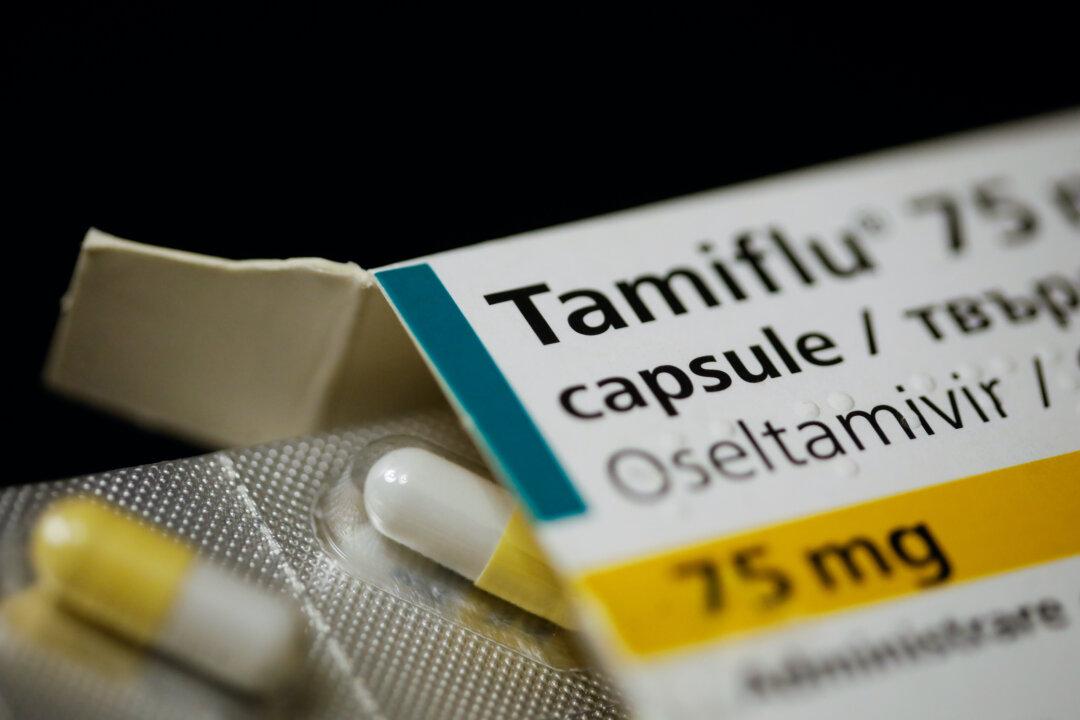The Biden administration is releasing a prescription flu medication through the strategic national stockpile amid an early spread of multiple respiratory illnesses this winter.
The U.S. Department of Health and Human Services (HHS) announced on Wednesday that Tamiflu will be made available to states, territories, and tribes “to respond to an increased demand for the antiviral during this flu season, including through the Strategic National Stockpile (SNS).”




